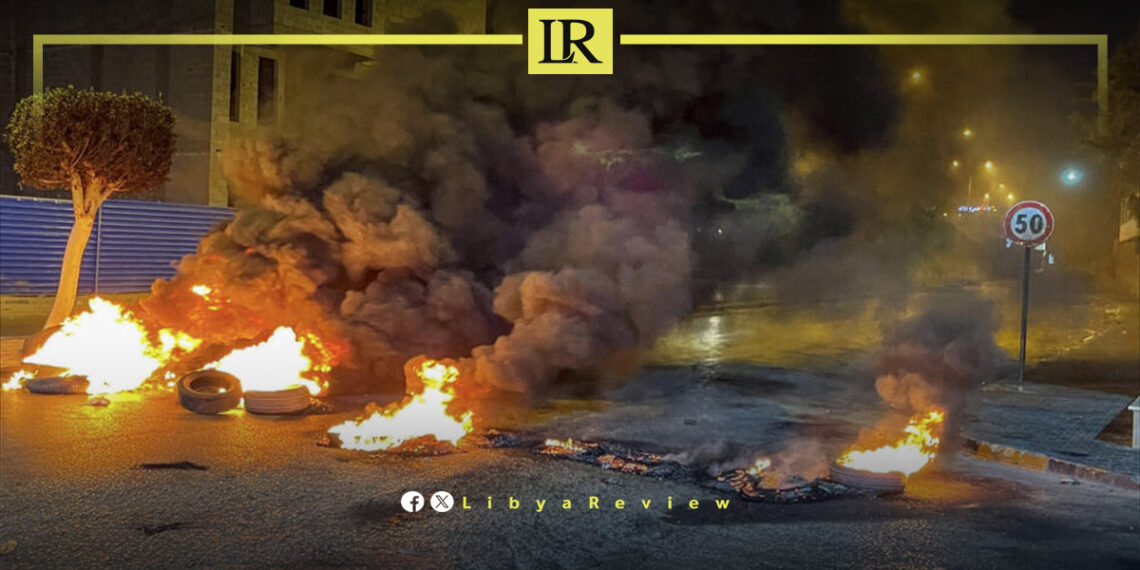The city of Zawiya in western Libya witnessed a surge in unrest on Thursday, as protests erupted and military vehicles mobilized following the killing of Mohammed Mustafa Al-Zweik.
Local media reported that demonstrators blocked the coastal road near the Qardabiya traffic light, burning tires and demanding justice for the young man.
According to reports, Al-Zweik was allegedly killed by two individuals identified as Alaa Nasr and Malik Shaqan. His body was found earlier on Thursday in the Salt Road area south of Zawiya, riddled with bullet wounds.
The incident has sparked outrage in the community, further highlighting the fragile security situation in the region.
Eyewitnesses described scenes of chaos as protesters shut down major intersections, including the Qardabiya junction, while armed vehicles gathered in various parts of the city.
Demonstrations also extended to the closure of the coastal road at the Smod Gate, a vital route linking Zawiya to neighboring areas.
The killing and subsequent unrest underscore the ongoing instability in Libya, where armed groups wield significant influence, often acting with impunity. Zawiya, a key city west of Tripoli, has long been a hotspot for militia rivalries and violence, exacerbating the challenges of governance and public safety.
Al Zawiya city has frequently been the epicenter of tensions in Libya, largely due to its strategic location and economic significance.
As a hub for oil infrastructure and trade routes, the city has been plagued by rivalries between militias vying for control. The lack of centralized authority since the fall of Muammar Gaddafi in 2011 has left Libya fragmented, with cities like Zawiya bearing the brunt of lawlessness and militia dominance.
Armed groups continue to operate beyond the reach of the law, leaving residents vulnerable and undermining any progress toward stabilization.
Observers warn that unless authorities take swift action to address public anger and improve security, the unrest in Zawiya could spill over into other cities, further destabilizing western Libya.


